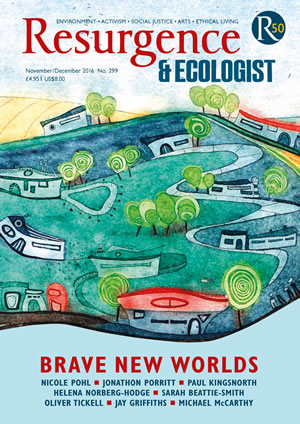This morning I made myself a challenge. I was going to go through a day without eating five foods: rice, wheat, corn, soya and palm oil. Really, I thought, how hard could it be?
For breakfast I had to forgo cereal and toast, but I could eat porridge and a fruit smoothie. I could also have a coffee. So far, so good. But then came lunch. The canteen at work left me little choice but the salad bar and some sweet potato fries that I was fairly sure were cooked in a non-palm vegetable oil. Even after a yoghurt and fruit, I didn’t feel completely satisfied. By late afternoon I was having stomach rumbles. I needed some of my favourite carbohydrates. At home, my wife had already bought some (wheat) noodles to make a pad Thai. By that point, I was happy to acquiesce.
I like to think I´ve got a fairly varied diet, but in reality those five foods are a dominant feature of both mine and that of an increasingly large proportion of the world’s population. Researchers call it the standard globalised diet. In the past 50 years the world has grown ever more reliant on just a few crops, while regional staples such as sweet potatoes and sorghum fall out of favour. It’s the McDonaldisation of our food and farming system.
This trend has coincided with rising levels of obesity and other health impacts linked to diet and has left our farming system acutely vulnerable. A lack of diversity in agriculture only increases its risk to disease, drought and climate change. For Simran Sethi, the author of Bread, Wine, Chocolate: The Slow Loss of Foods We Love, the message rings loud and clear: we need more, not less, variety in our diets. By seeking out diversity in every meal, we can help protect our future.
Her book is a report of her journey to find out more about the origins of the foods she eats, focusing on a few of her favourites: bread, wine, chocolate and beer. In it she admits her own initial reluctance to try new varieties and tastes. She fears a generation is now growing up alien to much of the food grown around the world. “The biggest barrier is not money, but our own openness,” she laments.
While she has long loved the taste of chocolate, before she made a journey to Ecuador she had given little thought to where it comes from. Trees with a leaf or sap, perhaps, she had thought, but not fantastical fruits full of creamy, white pulp enrobing 20 to 50 seeds. She was equally surprised as she explored the Kafa Biosphere Reserve in Ethiopia, the birthplace of wild Arabica coffee, where there are close to 5,000 wild varieties of the plant.
That surprise turned to recognition that this is the kind diversity we need to support if we want to continue drinking coffee. “Wild plants don’t have water delivered to them or get doused with chemicals to ward off insects,” she writes. “The coffee most resistant to diseases and pests, and most likely to tolerate any of the changes we’ll experience, grows here, in the forest.”
It is coffee, though, and specifically the rise of inquisitive cafés and consumers, that provides Sethi with hope for the future. Can bakers, for example, do for bread what baristas around the world have done for coffee, she wonders – to engender a conscientiousness about where their food comes from, how it is grown, and when and where it is produced?
While Sethi searches for diversity as a long-term safeguard for the foods she loves, Nicola Temple and Richard Evershed have found something more immediately threatening: food fraud. Despite the furore around the UK’s horsemeat scandal in 2013, it seems we are grossly underestimating the scale of the problem.
From milk powder contaminated with melamine, to anti-freeze added to sweeten wine, or honey made with corn syrup, the potential for lying to customers about the foods they are buying is endemic around the world. And it’s all about money. As conscientious shoppers such as Sethi look for a specific coffee from a specific region, there is money to be made in selling them something wrongly labelled as such.
Olive oil is a particularly popular food fraud case. It is produced in relatively low volumes and commands a high price – even higher if you choose a region-specific virgin variety – making it prone to lucrative adulteration.
Evershed and Temple’s book, however, does more than detail the food industry’s lengthy crime sheet. It also explores how the fraud is committed, how it can be overcome and, sadly, how the fraudsters are staying ahead. The perpetrators’ biggest advantage is the size and complexity of the food system. It is what caught UK supermarkets out in 2013, as many of them seemed to have no idea of the origin of the meat used by their suppliers, with a supply chain that stretched across multiple countries.
The authors give advice on how to avoid being a victim, much of it relatively simple, such as seeking out fish with a head on to be certain what species you are being offered. In fact, buying whole food you recognise is a good starting point. Even better if you can recognise the supplier, too, and avoid those increasingly complex supply chains we have all come to rely on. If you really want to make sure you are spreading real honey on your toast tomorrow, then find your local beekeeper and buy it direct.







